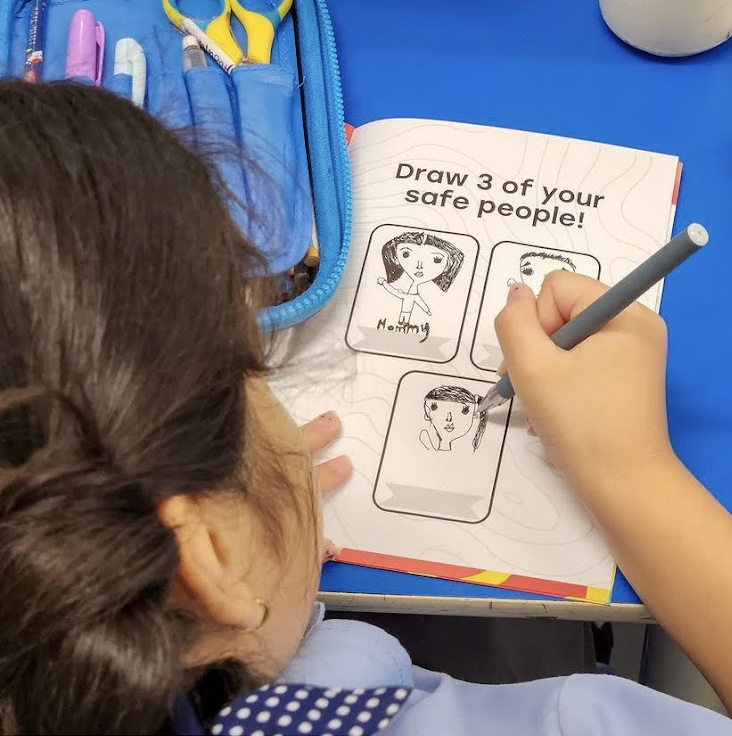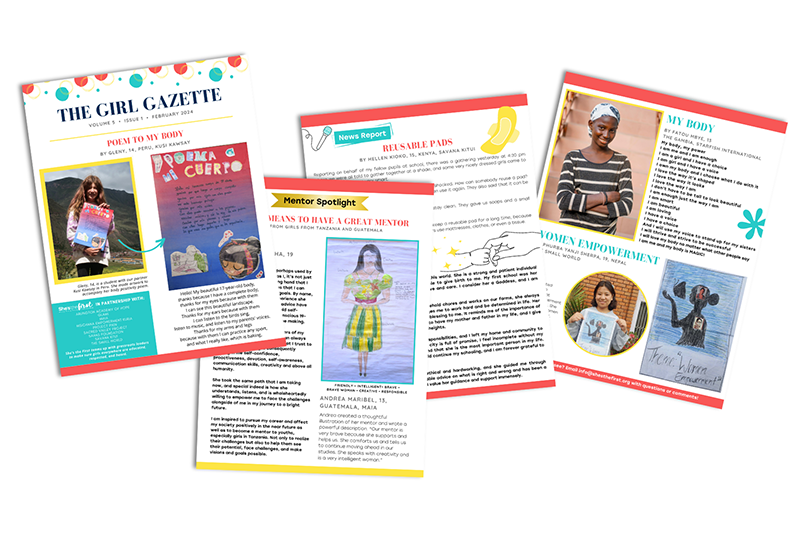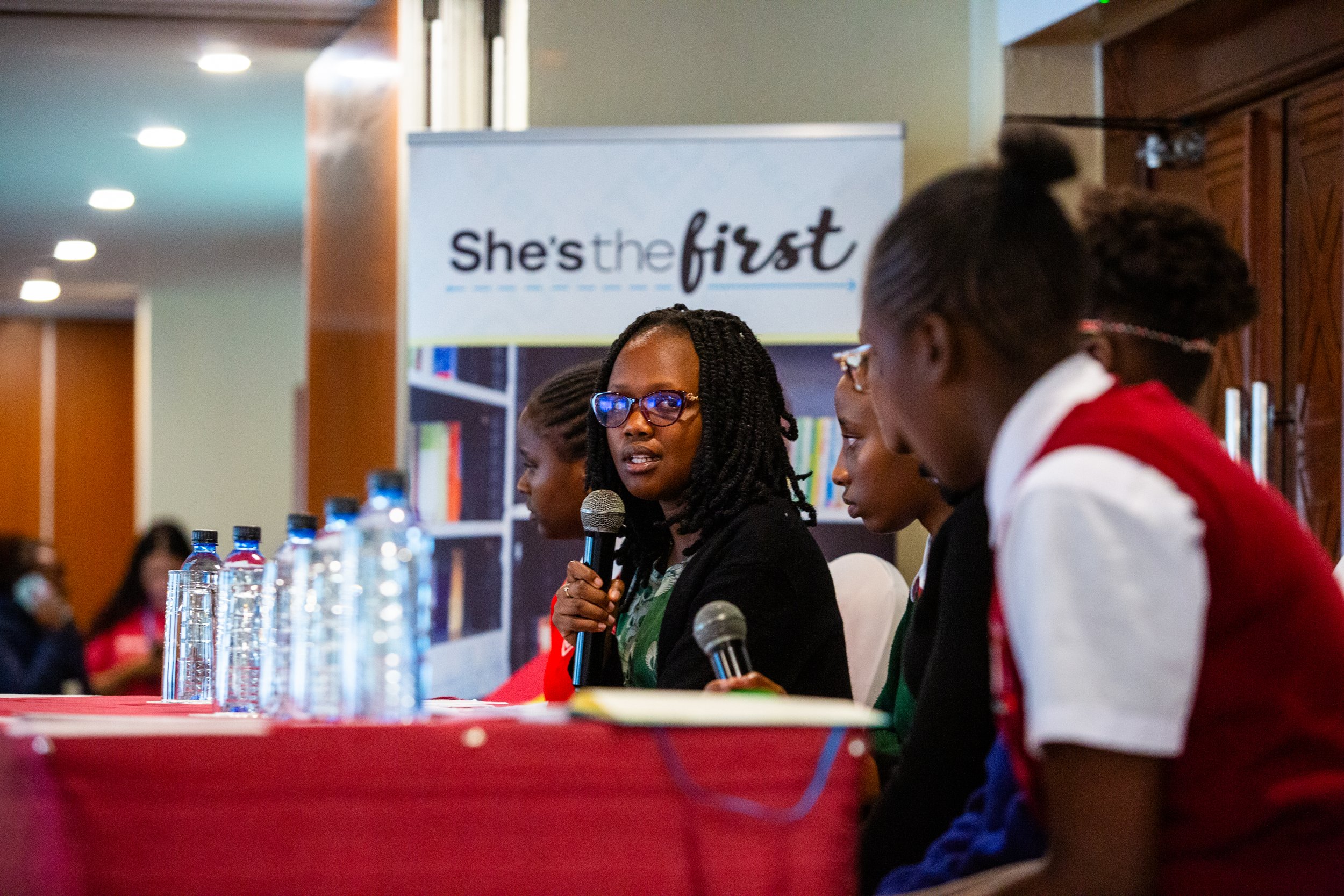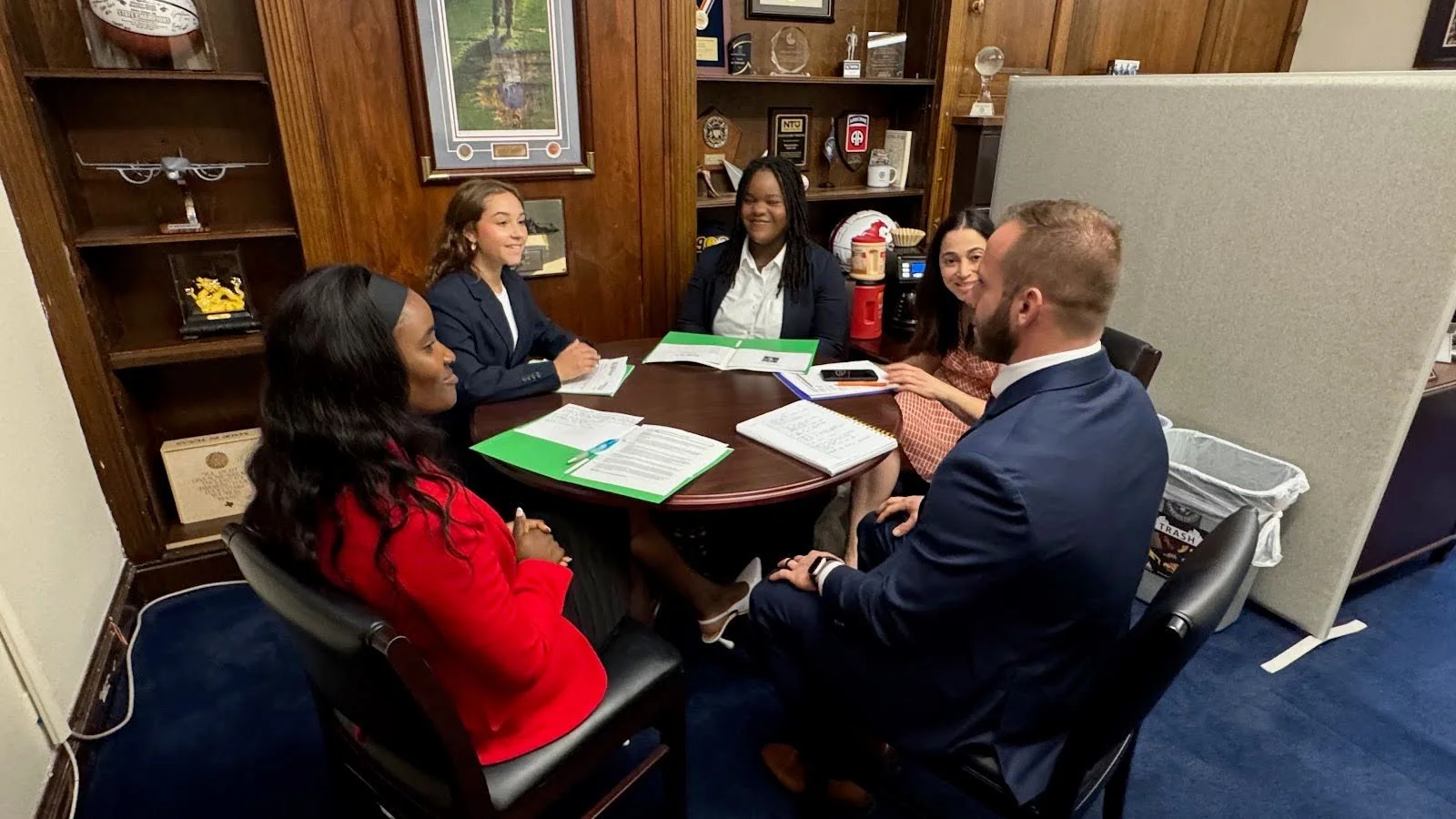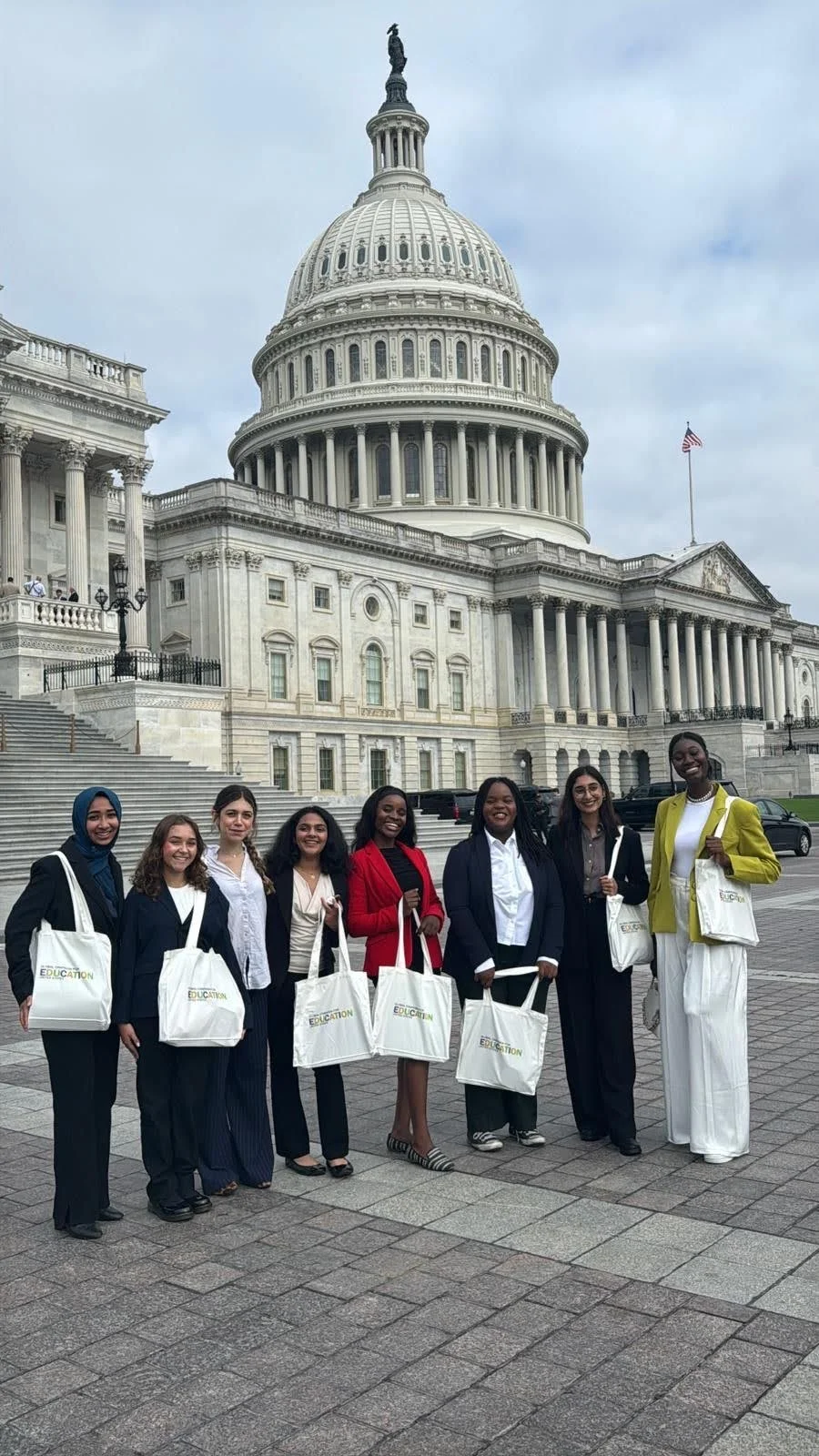By Lara Almeida, Girls Advisory Council member and President of STF Plano
Photos provided by Global Campaign for Education-United States
Often, I feel powerless and that those in power will rot this earth. When I think about my future, I fear I'll live in a greedy, overheated, and arbitrarily divided world. But on July 15, 2025, I talked to Congress on Capitol Hill— and ever since, part of me has changed my mind.
I never thought I would be “good enough” to speak to members of Congress at my nation’s capital. But when STF staff member Kate Lord encouraged me to apply to the Global Campaign for Education-United States’ (GCE-US) Youth Advocate program—and I got in—I started to realize that maybe I was.
My paternal grandfather grew up in a low-income family with a single mother in Brazil. He was the first in his family to earn a college degree—one in civil engineering that just so happened to break that cycle of intergenerational poverty. He married my grandmother, who was also the first in her family to graduate from college. Together, they raised a children’s psychologist, a lawyer, and my dad—a data scientist. Now, my brother and I will be the third generation to graduate from college.
Because of that one degree, we have warm beds and full plates. It was a no-brainer when my maternal grandfather moved from Nicaragua to Brazil for school, or when my parents moved from Brazil to the U.S. so my dad could grow a career, or when we moved from Washington to Texas so my dyslexic brother could attend an accessible school. We know the value of an education.
That was the story I told to the offices of seven U.S. senators and representatives—Keith Self, Mike Simpson, Robert Garcia, Mike Crapo, Alex Padilla, and Adam Schiff—as I advocated for American support of international basic education.
GCE-US’s 2025 Youth Advocates program brings young people to Capitol Hill to lobby for global education. In groups of youth with an accompanying adult, we pitched three priorities to legislative assistants: 1) funding for international basic education, 2) foreign assistance for children, and 3) participation in the Basic Education Caucus.
I was in awe of my team. Alongside me was Disability Justice advocate Helena Donato Sapp, who has four non-apparent learning disabilities, grew up bullied, and, like my family, her family spent years trying to find an accessible school. Refugee rights advocate Divine Irakoze shared how she grew up in a refugee camp in Malawi after her parents fled the Burundi civil war in 1994. She talked about how she recalls school meant sitting on rocks under trees and having fellow refugees as their teachers. We were guided by GCE-US executive director Giulia McPherson—a total sweetheart and one sharp leader.
After advocacy day, GCE-US asked us advocates to fill out a simple, short reflection form. But one question struck me: “What did you learn during Advocacy Day that you wish more people knew?” For me, the answer was simple: you matter.
First, you matter because your voice is valuable. She's the First has said it, and I’ll say it again: we are experts of our own communities. You don’t need to be a UN ambassador or global revolutionary to deserve a seat at the table. Your lived experience, girl expertise, local advocacy, and rockstar feminine confidence are enough.
“You don’t need to be a UN ambassador or global revolutionary to deserve a seat at the table. Your lived experience, girl expertise, local advocacy, and rockstar feminine confidence are enough.”
And second—despite frequent legislation that implies otherwise—there are people who care that you matter. As a clinically anxious, depressed, and sometimes passively suicidal teenager, as a queer person, and as the daughter of Latinx immigrants—it is so easy to feel utterly hopeless about the future. To feel that the entire world wants your downfall. But that’s not the truth. Right now, there are vast swaths of people doing everything they can to protect you. We even met some staffers who explicitly said our stories affirmed the work they were doing for education in the first place. When we stopped by a House committee meeting on the 2026 Appropriations Bill, we saw powerful, fierce people—including women—defend foreign assistance and the power of the purse. Even when we feel small, I promise: we are bigger than you can imagine. And we will not stop until you are safe. Stay here. Keep on going.
“Even when we feel small, I promise: we are bigger than you can imagine. And we will not stop until you are safe. Stay here. Keep on going.”
I still believe the powerful hurt this world. They have done it before and they are doing it now. After all, they are why organizations like She's the First and Global Campaign for Education need to exist. But I also believe that I—and the Helenas, Divines, Giulas, fervor-filled congresspeople, and passionate legislative interns— refuse to go down without a fight. Together, our presence is prominent and our demands undeniable.

